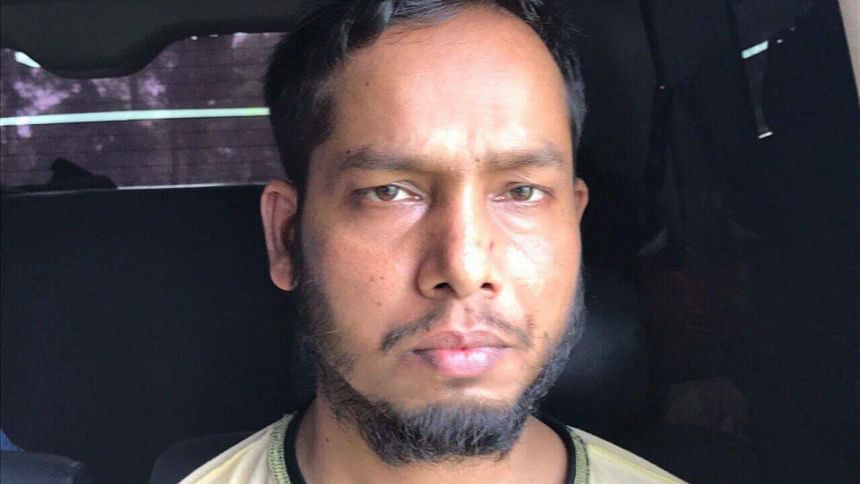Missing teen turned deadly militant

In 2003, Hasan Sheikh, a 19-year-old madrasa student of Sadipur Kablipara village of Kumarkhali in Kushtia, went missing.
The following year, his family came to know that he was staying somewhere in Pabna and had joined an organisation. They had no idea about the outfit.
Fast forward 14 years, Hasan is known as Sohel Mahfuz and is one of the top militants in the country. He specialises in explosives and is a key suspect in last year's Gulshan café attack. He is also the prime accused in the 2014 Burdwan blast case of West Bengal.
Sohel kept changing his identity and had managed to evade arrest until yesterday when he was caught in Chapainawabganj.
The name of Sohel Mahfuz and his aliases came up in police investigation many times over the years. Several arrested militants mentioned him but the man managed to evade arrest.
The police had been looking for him for 11 years.
Sohel left his family months after joining Jagrata Muslim Janata of Bangladesh (JMJB), a militant outfit that emerged in 2004 by launching a vigilante operation in Rajshahi, Naogaon and Natore under the leadership of infamous Siddiqul Islam Bangla Bhai, police said.
Sohel joined the month-long JMJB operation in which Bangla Bhai and his cadres tortured 44 people to death terming them "evils of the society".
JMJB later renamed itself to Jama'atul Mujahideen Bangladesh (JMB).
The JMB name came to the fore after the group executed a series of blasts in 63 districts on August 17, 2005.
"He [Sohel] was studying for Dakhil (equivalent to class-X) at Darshapur Madrasa when he left us," his mother Monwara Begum told The Daily Star at his house yesterday.
Sohel is fourth among his five brothers and five sisters.
His sister Rahima Khatun said they looked for him in many places but to no avail.
Investigators said JMB's bomb expert Zahidul Islam alias Boma Mizan groomed Sohel after observing his interest in explosives. Boma Mizan was snatched from police custody in a militant assault on a prison van in Trishal on February 23, 2015.
"He [Sohel] got primary training at the house of one Yusuf in Bogra along with some other JMB activists," said an investigator, adding that Sohel later moved to Chapainawabganj where he got married to the daughter of a JMB operative.
Sohel crossed the border and went to West Bengal, India, to evade police drives in the area. During his stay in India, he inspired some Indian militants and they formed a new branch of JMB in West Bengal.
He declared himself the ameer of the unit and remained in West Bengal until he returned to Bangladesh in December 2014.


 For all latest news, follow The Daily Star's Google News channel.
For all latest news, follow The Daily Star's Google News channel. 




Comments